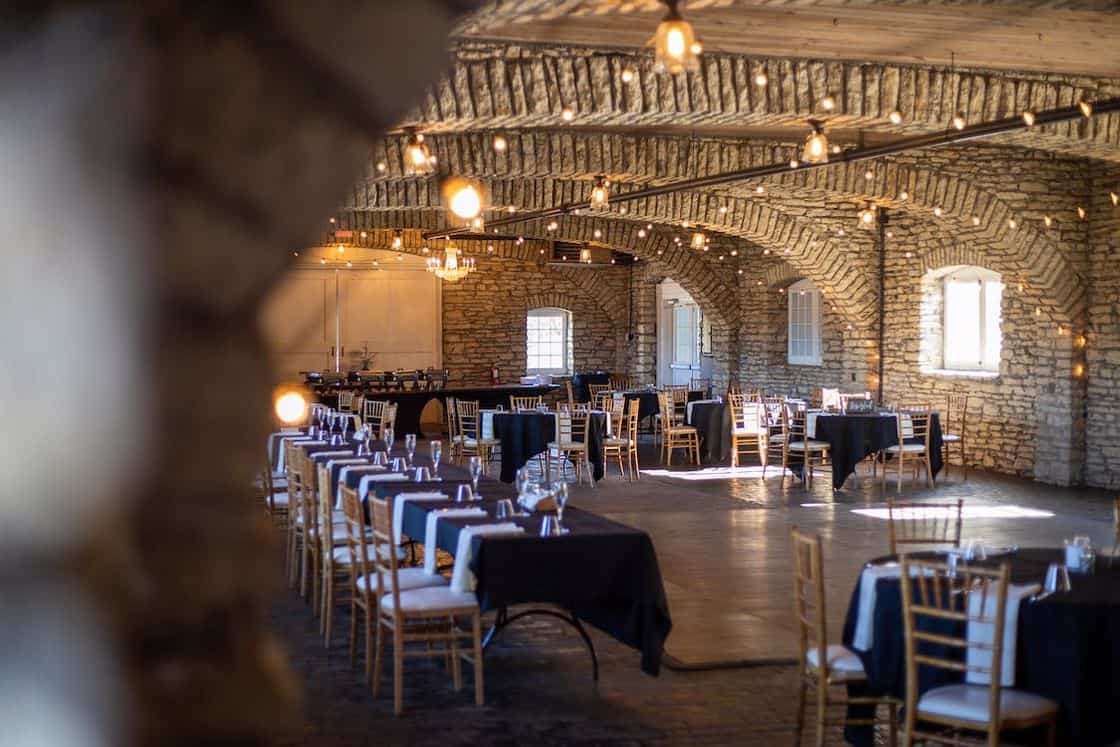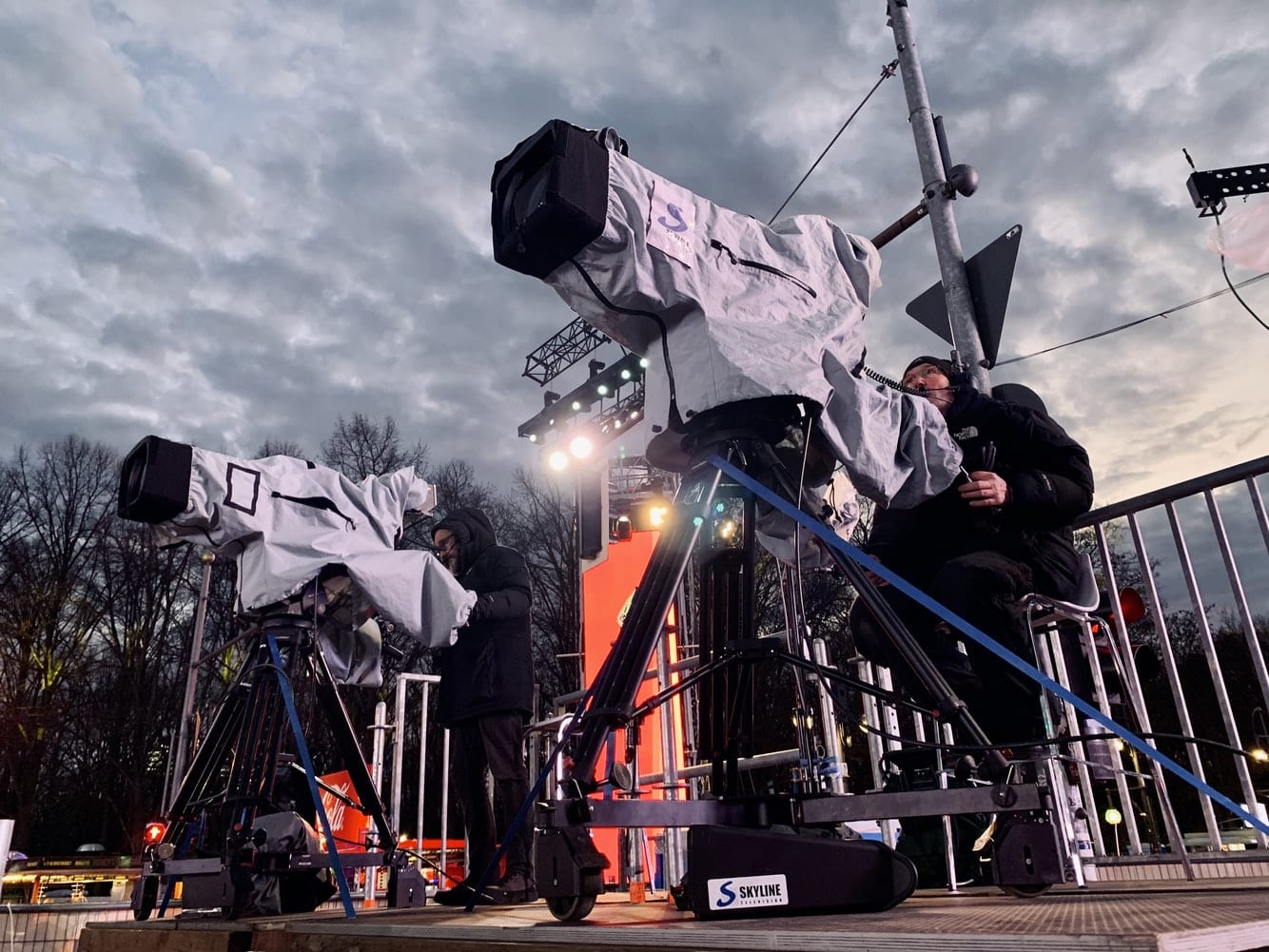Comprehending Event Production: Why It Is Necessary for Effective Celebrations
Event production plays a crucial function in shaping effective gatherings. It includes cautious preparation, coordination, and execution to ensure every information straightens with the event's vision. This process not only enhances guest experiences however additionally helps with purposeful connections among individuals. Understanding the details of event production can considerably influence the total end result. What are the crucial elements that add to an effective event, and exactly how can they be successfully handled?
The Duty of Event Production in Creating Remarkable Experiences
Numerous elements contribute to the success of an occasion, event production plays a pivotal duty in crafting remarkable experiences. This multifaceted process encompasses various elements, including planning, logistics, and implementation. Efficient event production warranties that every detail lines up with the total vision, creating a smooth circulation that mesmerizes attendees. By working with timelines, taking care of resources, and overseeing technical elements, event manufacturers develop a structure for impactful experiences.Moreover, they curate atmospheres that reverberate with the target market, improving engagement and emotional connection. From picking suitable venues to incorporating ingenious innovation, the options made throughout production greatly influence exactly how attendees regard and keep in mind the event. By focusing on top quality and focus to detail, event production transforms ordinary events right into phenomenal minutes, leaving long lasting perceptions. Eventually, the skilled orchestration of these components defines the significance of an occasion, showcasing the relevance of specialist event production in attaining exceptional end results.
Key Components of Effective Event Production
Effective event production rests on a number of vital parts that assure success. Preparation and sychronisation establish a strong foundation, while technological arrangement demands deal with logistical needs. In addition, carrying out target market engagement approaches enhances the general experience, making the event memorable.
Planning and Control
Planning and sychronisation function as the foundation of effective event production, ensuring that every detail aligns seamlessly to create a memorable experience. Reliable preparation entails developing a clear vision and objectives, while sychronisation entails the precise organization of logistics, routines, and sources. A distinct timeline is important, leading all stakeholders with important milestones and jobs. Communication plays an essential role, fostering collaboration amongst employee, vendors, and venue personnel. Regular meetings and updates aid to resolve challenges promptly, making certain that every person remains straightened with the event goals. Eventually, an organized approach to planning and control not only improves efficiency yet likewise greatly adds to the overall success and pleasure of the event for attendees and organizers alike.
Technical Setup Requirements
A successful event depends heavily on its technological configuration requirements, which include crucial components such as audio-visual devices, lights, hosting, and connectivity. Audio-visual equipment consists of microphones, audio speakers, and projectors, guaranteeing that presentations and performances are delivered plainly. Proper lights boosts the atmosphere and highlights vital areas, while organizing supplies the required system for speakers and performers. Connectivity, consisting of Wi-Fi and electrical accessibility, is important for seamless communication and innovation combination. Each element must be meticulously intended and performed, tailored to the event's details needs. Inadequate technical arrangements can lead to disturbances, adversely affecting the total experience for attendees, emphasizing the significance of extensive prep work and focus to information in event production.
Target Market Interaction Strategies

The Relevance of Planning and Coordination
Planning and control are essential to the success of any type of event production. Effective timeline management, resource allowance techniques, and team interaction dynamics play vital functions in ensuring that all elements integrated effortlessly. Without an organized approach to these aspects, events run the risk of encountering hold-ups, spending plan overruns, and miscommunication amongst employee.
Reliable Timeline Monitoring


While effective event production typically depends upon creativity and implementation, reliable timeline management remains an important aspect that can not be forgotten. A well-structured timeline serves as the foundation of any type of event, ensuring that each stage is executed in a prompt fashion. It permits the sychronisation of various tasks, from location arrangement to guest arrivals, while protecting against potential traffic jams. By plainly detailing deadlines and duties, event coordinators can preserve emphasis and adapt to unanticipated obstacles. Furthermore, a thoroughly crafted timeline promotes interaction among employee, advertising liability and partnership. Eventually, efficient timeline management not only improves functional performance but likewise adds substantially to the overall success and smooth execution of the event, leaving guests with a remarkable experience.
Source Allocation Techniques
Efficient source appropriation strategies pop over to these guys are essential for the successful execution of any event. Correct preparation permits event coordinators to recognize and disperse resources, such as funds, employees, and products, in a manner that makes the most of performance. By examining the particular demands of each facet of the event, coordinators can prioritize jobs and allocate resources appropriately. Sychronisation amongst different divisions makes sure that all aspects, from catering to audiovisual needs, are sufficiently supported. This tactical method not only reduces waste but also boosts the general experience for attendees. Additionally, anticipating possible obstacles and having contingency strategies in position enables for smoother operations. Inevitably, efficient resource allocation adds significantly to achieving event objectives and assuring an unforgettable gathering.
Group Communication Characteristics
Just how can seamless interaction among group members change the event production procedure? Effective interaction is essential for collaborating jobs, sharing updates, and attending to obstacles in real-time. When team participants involve in open discussion, they can rapidly identify possible problems and develop remedies collaboratively, lessening delays and misconceptions. This vibrant fosters a cohesive atmosphere where everybody comprehends their duties and obligations, resulting in an extra synchronized initiative. Additionally, regular check-ins and responses loops boost accountability and warranty alignment with the event's Full Article goals. By focusing on communication methods, teams can enhance operations, reinforce spirits, and eventually raise the total quality of the event. Successful events pivot on the capacity to connect effectively, making it a crucial component of event production.
Enhancing Guest Involvement Through Imaginative Layout
Imaginative design plays an important duty in boosting attendee involvement at events, as it promotes an immersive setting that astounds participants' attention. By integrating cutting-edge visuals, interactive components, and thematic decor, event planners can produce unforgettable experiences that reverberate with participants. Thoughtful format designs advertise activity and expedition, encouraging visitors to engage with display screens and each other.Incorporating innovation, such as enhanced truth or live polling, further enriches the experience, enabling for real-time comments and communication. Additionally, sensory elements like lighting, audio, and scent can stimulate feelings and develop an extra appealing atmosphere.The use of storytelling with style helps convey the event's function and message, making it a lot more relatable for guests. Ultimately, imaginative layout not only enhances engagement but additionally grows links among participants, leaving a long lasting impression that expands beyond the event itself. This tactical technique to layout is necessary for successful celebrations.
Managing Logistics for a Smooth Execution
While the exhilaration of an event can attract participants in, handling logistics is important to secure a seamless implementation. This includes thoroughly collaborating various components, from location selection and format to wedding catering and transportation. Effective logistics monitoring ensures that all components align, permitting for a smooth flow from enrollment to the final thought of the event.Additionally, a clear communication strategy among all stakeholders is essential. This consists of staff, suppliers, and volunteers, who have to be notified of their duties and duties. Expecting possible difficulties, such as tools failure or unanticipated climate condition, company website can better enhance the event's success.Creating a thorough timeline assists maintain the team on the right track and enables prompt adjustments. Eventually, well-managed logistics not just help with a delightful experience for attendees but also show the professionalism and dependability of the coordinators, adding to the general success of the celebration.

The Effect of Innovation on Event Production
What role does modern technology play in forming modern event production? Modern technology has actually become a keystone of efficient event production, enhancing both intending and implementation processes. From advanced registration systems to interactive apps, modern technology streamlines attendee monitoring and enhances engagement. Virtual event systems allow organizers to reach bigger target markets, breaking geographical obstacles and promoting hybrid gatherings that incorporate in-person and online experiences.Additionally, audiovisual technologies, such as high-definition screens and sound systems, boost the top quality of presentations and performances, making sure an unforgettable experience for participants - event production charlotte. Social media combination enables real-time comments and interaction, fostering area interaction previously, throughout, and after the event. Furthermore, information analytics devices help coordinators in keeping an eye on participant actions and choices, making it possible for customized experiences that resonate with diverse audiences. On the whole, the integration of innovation in event production not only improves functional efficiency however additionally enriches attendee experiences, ultimately contributing to the success of the event
Examining Success: Gauging the Outcomes of Your Event
Success in event production depends upon effective analysis, which entails determining a selection of results to assess the overall influence of an occasion. To accomplish this, organizers can utilize both qualitative and quantitative metrics. Quantitative measures may include presence numbers, ticket sales, and revenue generated, while qualitative analyses might involve guest fulfillment studies and responses forms.Additionally, examining social media sites engagement and media protection can give understandings into the event's reach and brand name impact. Comparing these metrics against predefined goals helps determine if the objectives were met.Furthermore, post-event debriefs with the planning team can discover lessons learned and locations for improvement. By methodically evaluating these end results, event producers can improve future gatherings, making certain continuous growth and success. Eventually, a detailed evaluation not just highlights success but additionally informs tactical decisions for subsequent events, cultivating a culture of quality in event production.
Frequently Asked Inquiries
What Certifications Should an Occasion Producer Have?
Event manufacturers need to have strong business skills, creative thinking, and efficient interaction capabilities. A background in job management, budgeting, and negotiation is important. Appropriate certifications and experience in varied event types additionally enhance their credentials.
How Can I Lower Event Production Expenses Successfully?
To effectively decrease event production prices, one can improve supplier option, work out contracts, make use of in-house resources, focus on essential aspects, apply technology for performance, and explore sponsorship chances to counter costs without endangering quality.
What Are the Typical Difficulties in Event Production?
Usual challenges in event production include budget plan restraints, logistical coordination, vendor monitoring, time limitations, guest interaction, technological problems, and unanticipated conditions - event production charlotte. Each element can greatly influence the total success and smooth implementation of the event
How Do I Choose the Right Venue for My Event?
Selecting the best location includes thinking about elements such as place, capacity, amenities, and budget plan. In addition, reviewing access and setting assures the chosen space straightens with the event's objectives and enhances the total participant experience.
What Is the Common Timeline for Preparation an Event?
The normal timeline for planning an event varies, but generally consists of phases such as idea growth, location selection, vendor control, promo, and last preparations, usually extending numerous months to ensure a successful execution.